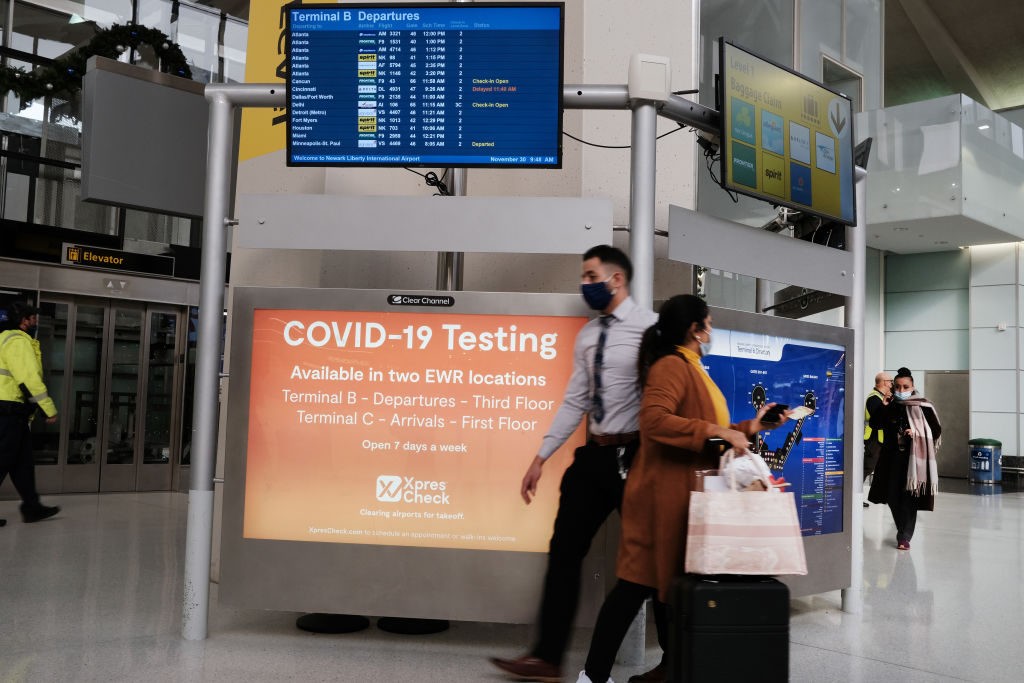The director of South Africa’s National Institute for Communicable Diseases (NICD) told Reuters on Tuesday the new coronavirus variant Omicron could “outcompete Delta,” a highly-transmissible strain of coronavirus that emerged before Omicron in India in December 2020.
“We thought what will outcompete Delta? That has always been the question, in terms of transmissibility at least, … perhaps this particular variant is the variant,” NICD acting executive director Adrian Puren told Reuters on November 30.
Puren noted it was “too early to say whether Omicron was displacing Delta in South Africa, since local scientists have only produced 87 sequences of Omicron so far.”
“But the fact that cases have started to rise rapidly, especially in the most populated Gauteng province, is a sign that some displacement might already be happening,” he added.
Puren predicted scientists studying Omicron “should know within four weeks” if the strain “can evade the immunity generated by vaccines or prior infection, and whether it leads to worse clinical symptoms than other variants.”
“Anecdotal accounts by doctors who have treated South African COVID-19 patients say Omicron appears to be producing mild symptoms, including a dry cough, fever and night sweats,” Reuters noted on Monday.

A COVID-19 testing facility is advertised at Newark Liberty International Airport on November 30, 2021 in Newark, New Jersey. The United States, and a growing list of other countries, has restricted flights from southern African countries due to the detection of the COVID-19 Omicron variant last week in South Africa. (Spencer Platt/Getty Images)
Omicron is the latest detected strain of “Covid-19,” which is the disease caused by a type of coronavirus called SARS-CoV-2. The World Health Organization (W.H.O.) dubbed Omicron a “variant of concern” on November 26 following reports the viral strain had emerged from Southern Africa in early-to-mid November. Omicron displays “several mutations that may have an impact on how it behaves, for example, on how easily it spreads or the severity of illness it causes,” the W.H.O. wrote in a notice posted to its website on November 28.
As Puren noted to Reuters on November 30, further study is necessary to determine if Omicron is more transmissible or likely to cause more severe illness than existing strains of “Covid-19,” also known as the Chinese coronavirus.
The U.S. Centers for Disease Control and Prevention (CDC) reported on August 26 that new data had emerged suggesting “the Delta variant was more infectious and was leading to increased transmissibility when compared with other variants, even in some vaccinated individuals.”
“Some data suggest the Delta variant might cause more severe illness than previous variants in unvaccinated people,” the U.S. CDC wrote. “In two different studies from Canada and Scotland, patients infected with the Delta variant were more likely to be hospitalized than patients infected with Alpha or the original virus that causes COVID-19.”
“Fully vaccinated people with Delta variant breakthrough infections can spread the virus to others,” the CDC noted.
Two Omicron cases detected in Japan this week — the country’s first pair of such infections — were in “fully vaccinated” men, one who traveled to Tokyo from Namibia, and another who traveled to Japan from Peru. The type of coronavirus vaccine received by the Namibian patient remains unknown, while the man who arrived in Japan from Peru “is fully vaccinated with Pfizer Inc.’s COVID-19 vaccine,” Japan’s Chief Cabinet Secretary, Matsuno Hirokazu, told reporters at a press conference on December 1.

COMMENTS
Please let us know if you're having issues with commenting.